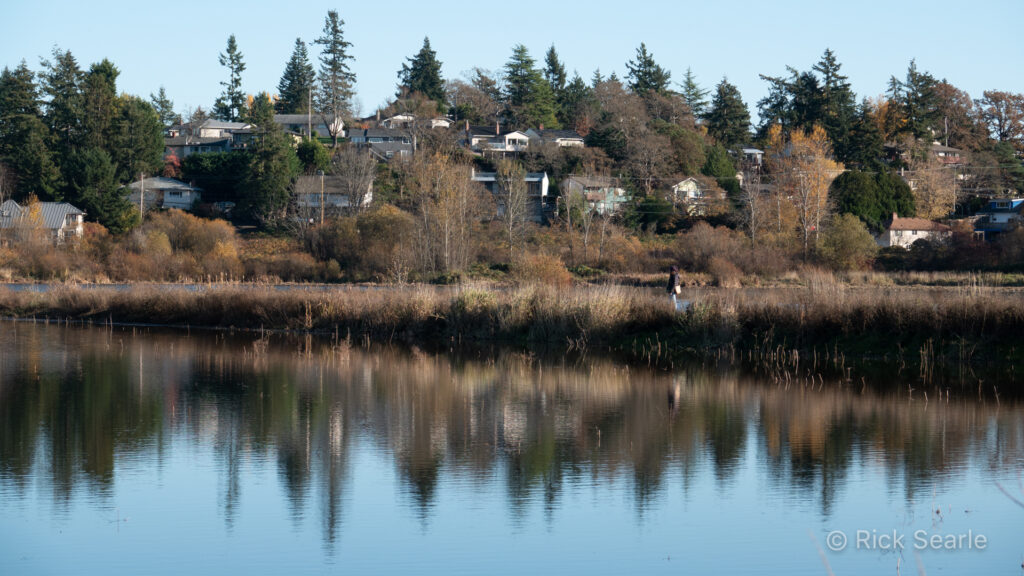Letter to Saanich Council re: Restoration of Panama Flats Wetland
 Oct. 23, 2020
Oct. 23, 2020
Mayor and Council
District of Saanich
770 Vernon Ave.
Victoria, BC, V8X 2W7
Re: Restoration of Panama Flats Wetland
Dear Saanich Mayor and Council,
On behalf of the Victoria Natural History Society, I’m writing to let you know of our Society’s concern regarding the management of Panama Flats. We recognize that Panama Flats are zoned for agricultural use. While we wholeheartedly support the protection of agricultural land, in this location, the ecological importance of this wetland cannot be overstated. Instead of farming it, we encourage you to commit to restoring and protecting it as a nature sanctuary, similar to Swan Lake Nature Sanctuary.
The Victoria Natural History Society is a completely volunteer community organization with a 75 year history in the region and as many as 750 members currently, many of whom are residents of Saanich. Our goals are:
- To stimulate an active interest in natural history;
- To study and protect flora and fauna and their habitats; and
- To work with other societies and like bodies having interests in common with the Society.
Not surprisingly, we take an active interest in regional land use decisions that could adversely impact wildlife and its habitat. Panama Flats provides very important habitat for a great many species despite being significantly degraded by past farming practices. Of particular concern are the adverse impacts continued farming would have on migratory birds using the Pacific Flyway year-round. The Flats are known and promoted as one of the region’s birding hotspots with at least 207 species of birds recorded (via eBird).
It should also be pointed out that the value of a wetland, like Panama Flats, goes well beyond just providing habitat for migratory birds and other wildlife. As many municipalities are discovering, protecting and restoring wetlands also makes good economic sense as shown through the Municipal Natural Asset Initiative. It employs tools to put a value on nature’s ability to provide municipal services, such as water purification, flood reduction, water supply and erosion control. Today, eleven municipalities across Canada have signed on to the initiative, which is leading to more wetlands and other natural ecosystems being restored and protected.
According to Ducks Unlimited, up to 80% of the original wetlands along Vancouver Island’s east coast have been destroyed. Within the Greater Victoria region, as much as 70% of the wetlands have been drained and filled in. Action to protect and restore wetlands within the region is urgently needed.
As we acknowledged in our Sept. 25th letter regarding the Royal Oak Golf Course property, the District of Saanich has a generally well-deserved reputation as an environmentally sensitive steward of public lands. In particular, we applaud the establishment of the Saanich Technical Committee recently with the sweeping mandate to “restore and protect air, land, and water quality, the biodiversity of existing natural areas and ecosystems, the network of natural areas and open spaces, and urban forests.” The restoration of Panama Flats is an excellent opportunity to demonstrate a commitment to this mandate.
It also makes good economic sense in terms of flood protection and other ecological services provided by the wetland at no cost as alluded to by the Colquitz River Watershed Proper Functioning Condition Assessment commissioned by Saanich in 2009. It concluded that Panama Flats provided important surface water management services and that there was “great potential” for restoring the area as a valuable natural asset. It went on to provide specific and detailed recommendations as to how this should be done. In the short-term, restoration effort should focus on re-establishing meanders in the Colquitz River channel along with the removal of invasive species and replanting with native species appropriate to the habitat. The long-term goal, according to the Assessment, should be the re-establishment of the broader wetland that once occupied the area.
We fully support these recommendations and urge you to adopt and follow through with these recommendations.
Thank you for your attention,
Philip Lambert
President,
Victoria Natural History Society
250-477-5922 plambert@pacificcoast.net
